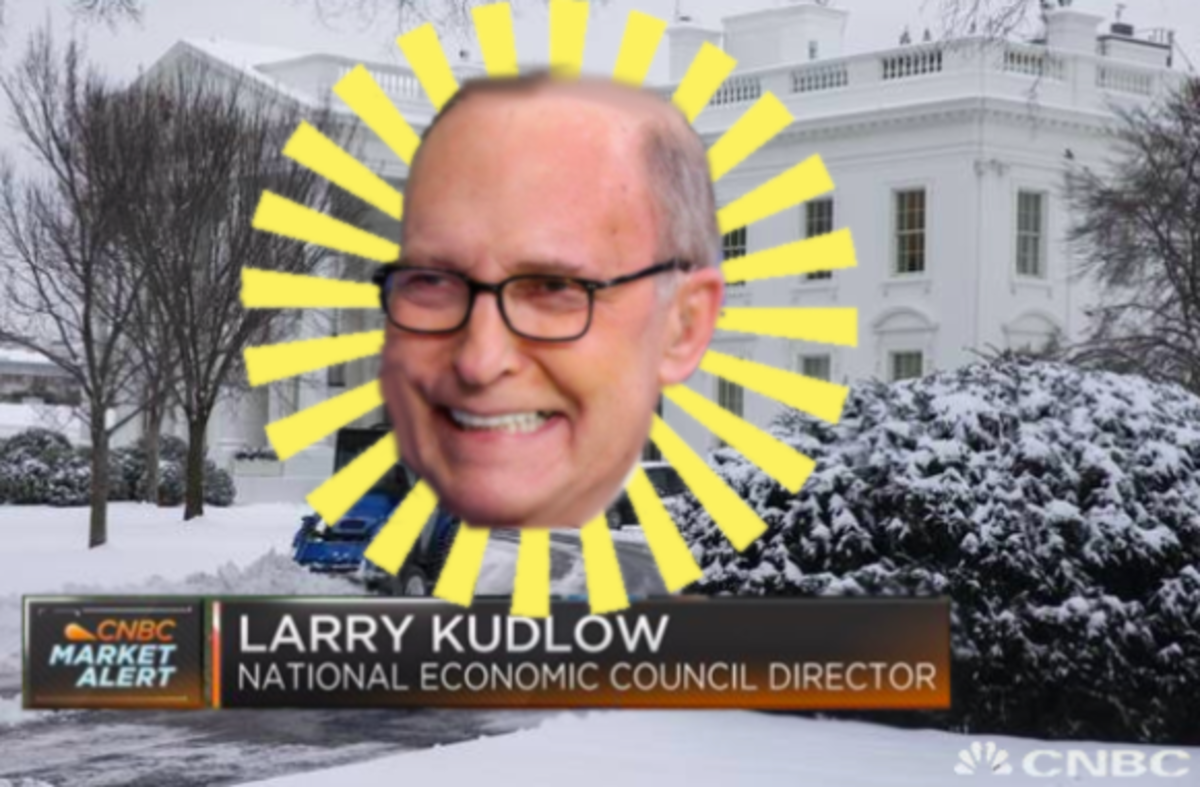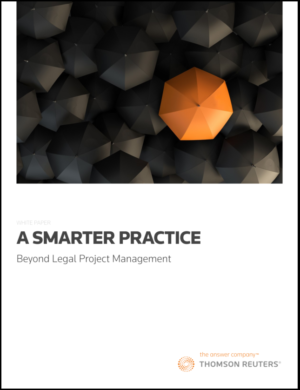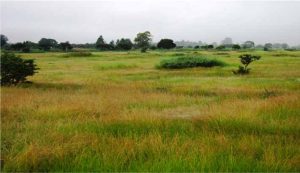As news of Barneys’s bankruptcy and subsequent sale spread, the collective mourning for a bygone retail era was tinged with at least some delight over the promised sales and steals that would clear Barneys stores of its unsold inventory before its new owner, ABG Group, closed the retailer’s doors for good. But what does that mean for the brands that supplied that inventory?
Well, some of the most powerful fashion companies, like those owned by LVMH, won’t be included in the margin-slashing liquidation sales that apply to other products sold at Barneys; their goods are protected by contracts negotiated long before the Barneys bankruptcy rumors ever erupted.
Meanwhile, emerging designers and independent labels, locked into less favorable contracts with Barneys which tipped towards the benefit of the now-dead wholesaler, are left in the lurch as the liquidation operators decide how and when to discount fashion items, many of which are still available at full price elsewhere on the market.
“This has been a wake-up call for small businesses that haven’t yet weathered a downturn,” says Susan Scafidi, director of the Fashion Law Institute, referring back to the Great Recession that challenged the retail environment a decade ago. “If we indeed have a recession on the horizon, whatever that may mean, Barneys’s [bankruptcy] may be a bellwether of things to come and may give lots of small brands a heads-up on how to think strategically and defensively going forward.”
The Barneys bankruptcy is hardly an isolated instance of failure in the current state of retail. Coresight Research found that the major factors which led to retail bankruptcies in the last two years included the saturation of the physical retail space in the United States, changing consumer trends, burgeoning e-commerce sales and rising debt among retail companies, each of which is still evident today. And according to a 2019 BDO Survey, more than half of U.S. retail executives surveyed believe bankruptcies will rise through the end of the year, as just as many are preparing for an economic downturn.
Related Articles
What 5 Successful Designers Learned From Launching During the 2008 Recession
What’s Going on With Barneys? A Timeline of Its Sale and What’s Next
All the Ways to Finance a Fashion Business in 2018
Given the outlook, it’s necessary that smaller brands — who may not have the parachute afforded by a cash-rich parent company — prepare for trouble in the retail market. Here are a few tips for how to protect against another disaster like the one happening at Barneys.
Diversify your retail presence
Much like an individual might do when investing, the best thing a smaller fashion brand can do to protect itself in a challenging market is to diversify its retail approach. Gone are the days in which the only way a brand could reach consumers was through a prestige physical department store based in a major city, says Charcy Evers, a New York-based retail consultant and trend analyst.
“The danger first and foremost is for any brand to get in bed with any retailer so deeply that if something happens to the retailer, it has a detrimental effect to a significant chunk of its business,” Evers says.
Building out a robust retail channel strategy necessitates, at the very least, a direct-to-consumer channel through a brand’s own website or store, while working with a mix of specialty and e-commerce retailers, as well as social media platforms which help brands meet their consumers where they are.
Take Area, the New York-based brand which Beckett Fogg and Piotrek Panszczyk founded in 2013, well after the Great Recession ended and just as the luxury and fashion spaces were finding new market traction. Area, with its celeb-beloved Instagrammable accessories and unique sense of glitzy glamour, attracted what would have once been considered the Holy Grail of wholesale relationships — from fashion-focused Barneys and Opening Ceremony to the more approachable Nordstrom. For its part, Area says some of its smallest wholesale accounts are as valuable as the brand’s larger retail partners, depending on how closely a particular retailer can get to Area’s target shopper.
Though the brand declined to provide specifics, co-founder Fogg explained that Area plans to grow its recently-launched direct-to-consumer channel and rely less on wholesale buyers who may ignore some of the essential products that give Area its unique aesthetic. The brand also plans to carry products that are exclusive to it e-commerce platform (and might have once been found at a retailer like Barneys) to attract shoppers to its site. As for its remaining third-party relationships, Fogg says Area is approaching its wholesalers more cautiously today.
“Of course, it is important to nurture specific relationships, but you must maintain exclusivity in a fiscally responsible way,” Fogg tells Fashionista via email. “The current turbulent retail landscape must be respected…it’s constantly changing and you have to be ready to adapt and reactively shift strategies. In order for that to happen, you have to have growth strategies in place that do not rely on the success of another company.”
Try alternative sales models
It’s also important that brands explore non-traditional formats for working with wholesalers. Evers explains that several department stores have created marketplaces within their retail spaces (different than the shop-in-shop model) to drive foot traffic while also helping shoppers discover new brands. Macy’s has its version, called “The Market,” while Bloomingdales has “Carousel,” and Kohl’s has “Curated by Kohl’s.” For the brands, it allows them access to the department store channel (meaning they get in front of more shoppers than they would on their own) without necessarily selling clothes to a retailer that may not be able to move the product. And if the department store channel isn’t where your brand’s customer shops, there are alternative models; think retail-as-a-service companies like B8ta, which help brands showcase their products in stores across the country and understand retail analytics to develop new products.
Alternatively, fashion and beauty brands might explore the consignment model, more commonly employed by jewelry brands, which allows the brand to “loan” its products to the department store until they are sold. Doing so requires a brand to file a Uniform Commercial Code Financing Statement with a detailed description of the brand’s goods that are consigned, explains Adrienne Montes, an attorney at New York-based law firm Gabay & Bowler and Chair of the Fashion Law Committee of the New York City Bar Association. “The financing statement once filed and perfected notifies other creditors that those goods are not owned by that retailer,” Montes explains. “It is crucial that the statement is perfected properly and regularly renewed, and that the brand keeps a detailed record of every item on consignment.”
Protective financial strategies are another way that brands can insure themselves, literally and figuratively, against the risks they face working with wholesale partners. Scafidi explains that purchasing credit insurance may be a cost-effective way to cover a wholesaler’s unpaid invoices, should it get to that, as was the case with Barneys. Another option is factoring. As Scafidi explains, it’s a common form of financing in which a factor pays you a percentage of the money a wholesaler may owe you after a purchase is completed so you don’t have to wait for the funds to keep the lights on in your showroom. Once the wholesaler pays its invoice, the factor collects a percentage of that money and gives you a remaining percentage, assuming the wholesaler does, in fact, pay its outstanding invoices.
In essence, “You have your money earlier, the factor is typically secondarily insured against loss, and the factor bears the risk of the store not paying,” Scafidi says.
When retailers go under, seek legal help
Ideally, a brand’s existing contract with a third-party seller will stipulate how the brand’s products are repurchased or discounted in the event of a bankruptcy or poor sales quarter, though that may not always be the case. In many instances, smaller fashion brands have less leverage when approaching a wholesaler in the throes of bankruptcy, left to pick up whatever financial scraps are left after a retailer’s secured creditors are paid.
Unfortunately, it’s risky for any group of independent fashion brands to join as consumers might in a class-action lawsuit, as it could be seen as price-fixing or restraint against trade, which violates antitrust laws, Scafidi says. That said, fashion brands may pool their resources to hire legal help under the circumstances of a shared retailer’s bankruptcy to recoup money or pursue a clawback (a legal stipulation a brand may include in its wholesale contracts which require retailers to send merchandise back) or a buyback, though instances of this are rare.
For a cash-strapped brand, there are subsidized and free legal resources that may help a designer pursue litigation against a faulty retailer. Montes says that local bar associations and law schools may offer pro-bono legal advice (In New York City, for example, that might include the NYC Bar Association’s Neighborhood Entrepreneur Law Project or its Fashion Law Committee, which works with the Fashion Law Institute at Fordham Law School to host clinics throughout the year.)
“What’s key for these brands is to be nimble, to be flexible and be able to fail fast,” Evers advises. “You do need to try, you need to experiment and expose yourself, but you can’t have your whole body in the water, you just need to dip your toe in it, so to speak. I think that’s the smart way to move into uncharted territory.”
Never miss the latest fashion industry news. Sign up for the Fashionista daily newsletter.




 Kathryn Rubino is a Senior Editor at Above the Law, and host of
Kathryn Rubino is a Senior Editor at Above the Law, and host of 












